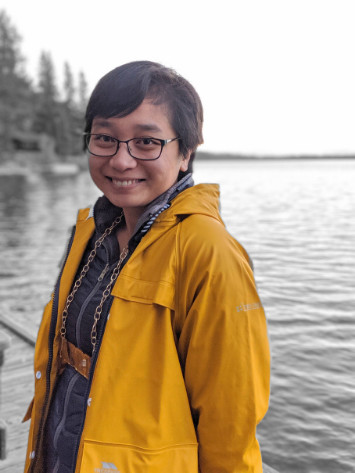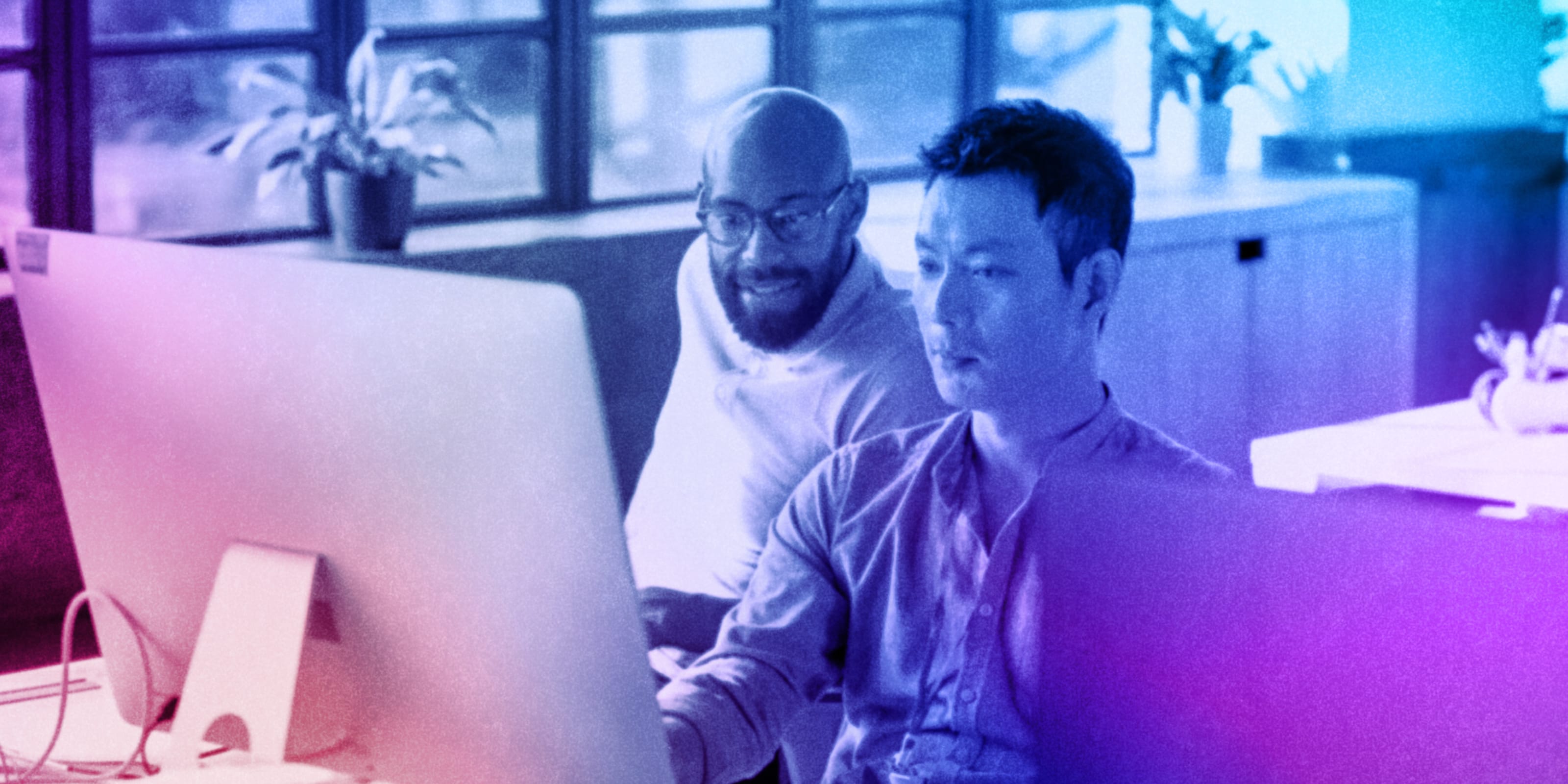Asian American and Pacific Islander (AAPI) Heritage Month celebrates the contributions Asian Americans and Pacific Islanders have made and recognizes their achievements in a variety of fields. BIPOC@Dox is an employee resource group committed to fostering a culture of equity and inclusion for AAPI Doxers and all Doxers of color, especially during challenging times. We had the opportunity to catch up with a couple of Doxers who belong to AAPI communities to discuss identity and solidarity at work.
April Brust, MS, Lead Visual Content Designer

1: What does being Asian American mean to you?
That facet of myself is something I’ve had an evolving relationship with. As a child it was something I suppressed or downright rejected. I am a first generation Chinese American, and my family was the first from our relations to move to the U.S. My parents spent their energies trying to assimilate, and oftentimes dwelling on our inherited culture seemed to hold us back.
As an adult, as recently as a few years ago, I glided along not identifying with it. Racial microaggressions would call me out though. I would freeze and boggle, not understand, and move on. It seemed to only be my problem, and not a very urgent one at that. I didn’t feel like I needed to “stop the car” and name my discomfort.
It was when I started having conversations with other Asians that I realized it was not just my problem. My experience is part of a larger pattern, and my story is repeated many times, variations on a theme. While “Asian American” can mean wildly different things in terms of cultural inheritance and self identity, we operate in the same systems, and face a similar set of challenges.
I read in the book “Breaking the Bamboo Ceiling” that Asian Americans may have a cultural tendency to seek a consensus. So what does being Asian American mean? Maybe that I will continue to ask others the same question, reflect, and (as current events make painfully clear is necessary)—act.
2: How do you bring—or strive to bring—your full self to work?
I make no distinction between developing myself as an individual and developing myself at work. I believe in what I do, and am lucky enough to work with people who are passionate and caring. It might be harder to leave myself at home!
When I was in grad school and a career counselor met with our class, I asked him the question “How do I sound less cheesy when I say the things I believe?” (I worried that speaking from the heart about my ideals could come off as trite. Like “I’m a team player” or “I love a challenge,” etc.) I don’t remember the counselor’s answer, but I remember right afterwards, someone asked “How do I sound more sincere?” What? I wondered at the mindset behind that question. Does it come from wanting to say things the way that people want to hear them? One of these is backwards, and I would rather sound cheesy.
I also try to be better than I usually am at work, because I feel like the people around me deserve it and bring it out in me. I share my hobbies and things that make me laugh in our team’s watercooler channel, or things that make me think of them.
3: How are you taking care of yourself during challenging times?
I take care of my ridiculous pets and massive plant collection. Also, bath bombs and podcasts! Seriously though, I think most importantly I am making it my goal to reach out more often to more people. Even those I’ve lost touch with and haven’t talked to in a decade. When if not now? I’ve gotten wise to myself and schedule these social dates as recurring calendar events. I made a list of names to contact, and went through it. The pandemic means that I have to keep my local friends at a distance, but in a sense it also brought my long-distance contacts closer. Everyone is equally reachable through call or message. (The forces that cleave only make me cling harder!)
As a result I’ve rekindled a few friendships, and improved my family relationships. And these relationships have helped me through other patchy times.
4: How can AAPI communities and all communities of color benefit from solidarity?
It was heart-wrenching to read and understand more about the effects of the model minority theory as a harmful narrative inflicted on all minorities.
When we are separated by this ill-fitting narrative, we don’t understand our own context, or how our situations fit together. It’s hard to see the common threads of the problems we face. It’s hard to see how helping each other helps our own causes. Our separated actions towards positive change are cumulative at best when siloed, but can be synergistic when we work with shared resources and stand in solidarity.
If Doximity sounds like the place for you, check out the job board!
Interview conducted by Angelica Recierdo
Banner image created by Hannah Gambino
